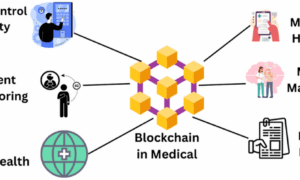Introduction:
Biotechnology has become a cornerstone in modern agriculture, ushering in a new era of innovation that revolves around genetic engineering. This article explores the profound impact of biotechnology on crop production, delving into the ways in which genetic engineering is revolutionizing agriculture. From increased crop yields to enhanced resilience, the integration of biotechnology is shaping the future of sustainable and efficient farming practices.
The Evolution of Agricultural Biotechnology:
Agricultural biotechnology, particularly genetic engineering, has witnessed significant advancements over the years. As technology has progressed, so too has our ability to manipulate the genetic makeup of crops. This evolution has paved the way for the development of genetically modified organisms (GMOs) that offer improved traits such as resistance to pests, diseases, and environmental stress.
Enhancing Crop Yield and Quality:
Genetic engineering has played a pivotal role in boosting crop yields and improving overall quality. By introducing traits that enhance photosynthesis, increase nutrient uptake, and resist pests, biotechnology has empowered farmers to cultivate more robust and productive crops. This not only addresses global food security concerns but also contributes to economic sustainability for farmers.
Drought and Pest Resistance:
Biotechnological innovations have led to the creation of crops with heightened resistance to drought and pests. Through the incorporation of specific genes, plants can better withstand adverse environmental conditions and repel harmful insects. This resilience is a crucial factor in maintaining stable agricultural production, especially in regions prone to unpredictable weather patterns.
Precision Agriculture and Resource Efficiency:
Genetic engineering enables the development of crops tailored for precision agriculture. By optimizing resource utilization, these crops require fewer inputs such as water, fertilizers, and pesticides. This not only reduces the environmental impact of farming but also enhances the efficiency and sustainability of agricultural practices.
The Role of Biotechnology in Sustainable Farming:
Sustainable agriculture is a growing priority, and biotechnology is at the forefront of this movement. The development of crops with improved resilience and resource efficiency aligns with the principles of sustainable farming. Biotechnological solutions contribute to minimizing the ecological footprint of agriculture, promoting soil health, and preserving biodiversity.
Challenges and Controversies in Biotech Agriculture:
Despite the undeniable benefits, biotechnology in agriculture is not without its challenges and controversies. Concerns surrounding the long-term environmental impact, cross-contamination, and ethical considerations related to genetic modification have sparked debates. Striking a balance between innovation and responsible implementation is essential to address these concerns.
Biotech Crops Around the Globe:
The adoption of biotech crops varies globally, with some countries embracing these innovations more readily than others. In the United States, for example, genetically modified crops like soybeans, corn, and cotton are extensively cultivated. Understanding the global landscape of biotech adoption is crucial for assessing the broader impact on global food systems.
Future Prospects:
CRISPR and Beyond:
The advent of CRISPR-Cas9 technology has further expanded the possibilities of genetic engineering. This precise and versatile tool allows for targeted modifications with unprecedented accuracy. As research continues, CRISPR and other emerging biotechnological techniques hold the potential to address specific challenges in agriculture more effectively.
Consumer Perception and Education:
Public perception of biotech agriculture plays a vital role in its acceptance and implementation. Educating consumers about the science behind genetic engineering, its safety, and its potential benefits is crucial for fostering understanding and acceptance. Transparent communication can bridge the gap between science and public opinion.
Regulatory Frameworks and Policy Considerations:
The regulation of biotech crops varies from country to country. Establishing clear and science-based regulatory frameworks is essential for ensuring the safe deployment of genetically modified organisms. Striking a balance between fostering innovation and protecting the environment and human health requires thoughtful policy considerations.
Conclusion:
Biotechnology’s impact on agriculture, particularly through genetic engineering, is reshaping the way we cultivate crops. The integration of innovative traits has led to increased yields, enhanced resilience, and resource-efficient farming practices. While challenges and controversies persist, the potential benefits for global food security and sustainable agriculture are undeniable. As technology continues to evolve, biotechnology holds the key to addressing future challenges and fostering a more resilient and productive agricultural sector.



































